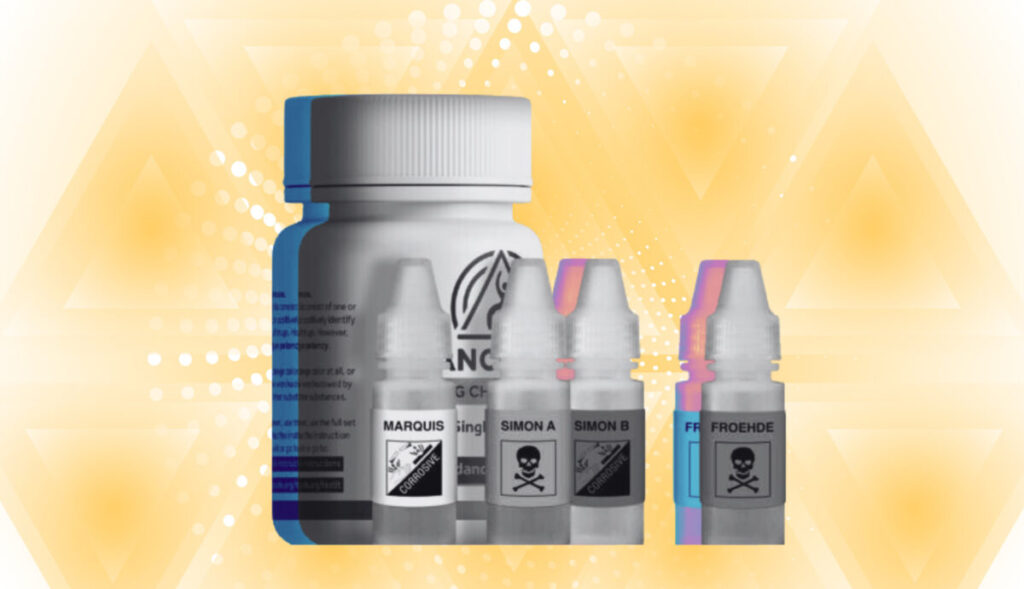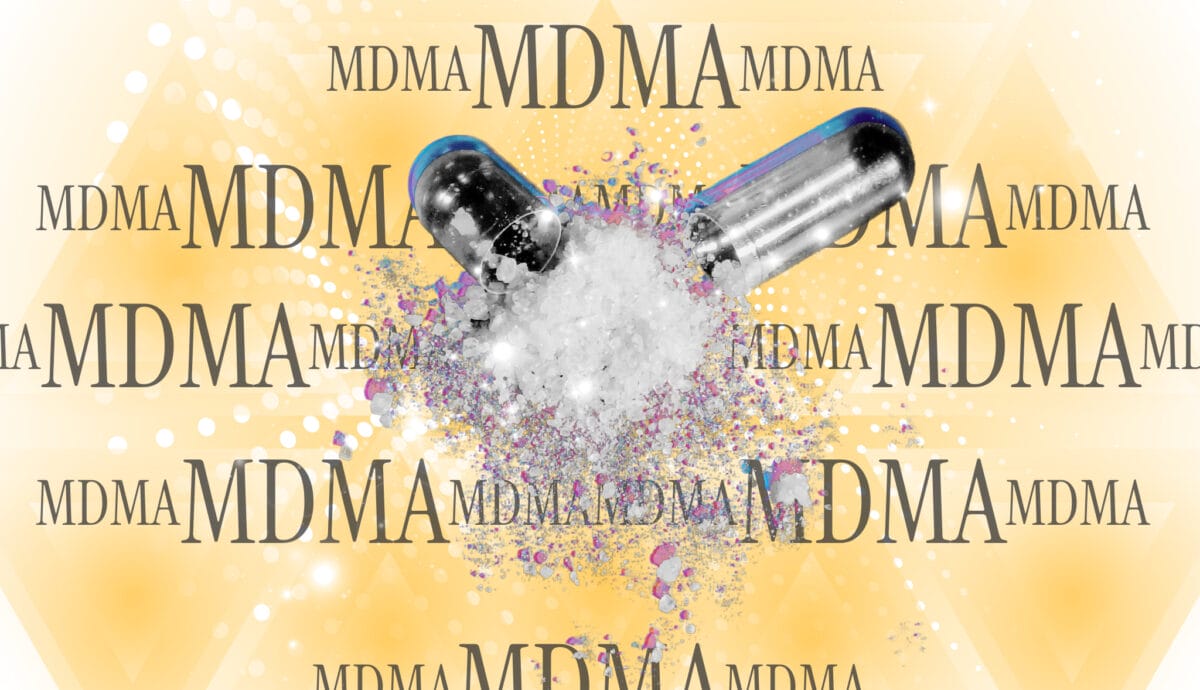Following the multi-decade regulatory pursuit, legal MDMA-assisted therapy (MDMA-AT) seemed imminent to many people. In February 2024, the FDA accepted Lykos Therapeutics’ New Drug Application (NDA), and all markers indicated a likely approval.
However, on June 4, the Psychopharmacologic Drugs Advisory Committee (PDAC) shattered optimism when nearly all members advised the FDA to reject Lykos’ application.
In a 9-2 and 10-1 vote, the committee asserted its belief that MDMA therapy, as it stands, is neither effective nor safe for Americans with PTSD.
So, what is MDMA’s FDA approval status following the hearing?
The outlook seems grim, given that the FDA aligns with the advisory panel 88% of the time. Still, Lykos (formerly MAPS Public Benefit Corporation) remains hopeful.
“We believe there is a path forward and are focused on collaborating with the FDA as they continue to review our NDA over the months,” said Lykos in an email interview.
A final decision on MDMA for PTSD is expected on or around August 11th.

The Backstory
Starry-eyed psychedelic proponents didn’t see the dissent coming. The FDA had just granted Lykos’ NDA priority review, and everything seemed to be going smoothly.
However, the contention became clear on March 26, when the Institute of Clinical and Economic Review (ICER) published draft evidence on MDMA-assisted therapy for PTSD. In the report, ICER acknowledged MDMA’s potential to help people heal from trauma. However, it raised significant concerns about weaving this novel treatment into traditional medicine.
The TLDR of the report’s criticism was that Lykos’ clinical evidence did not sufficiently support MDMA therapy for PTSD. The report cited alleged data validity issues, potential biases from therapists and participants, and a reported incident of sexual misconduct. It also highlighted MDMA’s cardiovascular risks, unexamined adverse events, and lack of long-term data proving the therapy’s enduring effects.
A month later, five people submitted a citizen petition to the FDA commissioner requesting the organization convene an advisory committee meeting on MDMA-AT to discuss the application’s “shortcomings and risks.” The letter also called for an extended public comment period prioritizing concerned speakers, and a live webcast.
The letter’s primary claim against the NDA was that MAPS/Lykos allegedly “manipulated clinical trial data to hide adverse events from regulatory agencies, motivated in part by a belief that these agencies would not understand that these adverse events are a necessary part of their MDMA-AT.”
The FDA responded to the petition by granting the advisory committee meeting with an extended comment period. However, it denied the request to prioritize input from concerned stakeholders.
The Meeting
June 4th’s meeting was a nine-hour saga, inviting FDA members, public participants, Lykos representatives, and eleven PDAC panelists to debate the risks and benefits of MDMA-assisted therapy.
PDAC boasted various roles in the psychopharmacologic field, including consumer representatives, pharmacists, patient representatives, scholars, and physicians. It did not include experts from the field of psychedelic research. Nevertheless, by 5:30 p.m., the board confidently dismissed MDMA-AT’s ability to do more good than harm for PTSD.
Lykos told Psychedelics Today that they didn’t see the rejection coming.
“Going into the meeting, we knew this was a unique assignment for the panel to review a drug-plus therapy combination. We did, however, believe that the fact that studies showed MDMA-assisted therapy offers statistically significant and clinically meaningful improvement in PTSD symptoms and functional impairment compared to placebo across two phase 3 trials with evidence of durability over time would compel the panel to support approval.”
MAPS / Lykos’ second Phase III Trial (MAPP2) found:
- 86.5% of patients in the MMDA-AT group clinically benefited from the treatment compared to 69% in the placebo group.
- 71.2% of the MDMA cohort no longer held a PTSD diagnosis, compared to 47.6% in the placebo group.
- 46.2% of MDMA patients achieved remission compared to 21.4% in the placebo cohort.
Despite the clinically impressive results, PDAC emphasized significant doubts about the data’s validity and MDMA-AT’s overall safety.
Functional Unblinding and Expectation Bias
Functional unblinding occurs when participants or researchers accurately predict the treatment they receive or administer. Expectation bias occurs when someone anticipates a particular result. Prior experience, previously held beliefs, and functional unblinding can cause such biases, potentially impacting patient experiences and reporting.
Dr. Paul Holtzheimer from the National Center for PTSD said, “Expectation bias can work in two ways. It can exaggerate the effect of the active treatment and blunt the effect of the placebo treatment.”
It’s true that 40% of the trial participants used MDMA in the past and may have assumed the drug worked based on prior positive experiences.
However, as Lykos points out in a recent statement, “The data indicates that prior illicit MDMA use had no impact on the results, as there was no meaningful difference in primary outcome measure or adverse events reported between the subgroup of Phase 3 participants who reported prior illicit MDMA use and the subgroup of participants who did not.”
Functional unblinding impacts, however, are far more debatable.
Renowned psychedelic drug researcher Matthew Johnson, PhD, explained Lykos’ unblinding problem in a recent X post.
Johnson said, “For those [in the study] thinking they got MDMA, the therapeutic effect was nearly identical between MDMA and placebo [groups]. Yikes.”
In other words, people who guessed they were on MDMA achieved similar therapeutic responses, whether or not they really took the drug.
Still, Johnson points out in The Illusion of Consensus podcast that functional unblinding is not a new issue for psychedelics, nor is it unique.
“There are a whole host of drugs that have been [FDA] approved. All of the sleep drugs… all of the anti-anxiety benzodiazepines, all the ADHD drugs… all of the opioid pain relievers. The practice of psychiatry is filled with psychoactive drugs that have very clear signatures… I want to know to what degree in FDA advisory panels this [functional unblinding issue] has come up… Because cutting through the blind is an issue for all these [compounds]… I don’t think psychedelics should be held to a higher standard than the normal process.”

Misconduct and Data Integrity
Potential misconduct during the MAPS / Lykos trials added to PDAC’s concerns about the integrity of the results.
Allegations included reports that principal investigators:
- Discouraged patients with negative experiences, like suicidality, from participating in follow-up studies.
- Influenced patients to report favorable outcomes.
- Inconsistently recorded adverse events.
- Purposely recruited patients who would respond well to MDMA therapy for PTSD.
PDAC also lamented the trials’ insufficient data on patients with severe trauma as well as an overall lack of diversity, citing low Black and Asian representation.
Dr. Melissa Barone, a psychologist from the Maryland Healthcare System, said, “There are so many problems with the data that each one alone might [be okay]… But when you pile them up on top of each other… I think there are still a lot of questions about how effective the treatment is and how durable it is.”
At least some of the mistrust centered on the perception that Lykos and MAPS founder Rick Doblin, PhD, are determined to push MDMA approval at any cost.
Lykos says, “Like all research sponsors, Lykos and its clinical sites are subject to regular FDA inspections. We have full confidence that the FDA will continue to assess the integrity of Lykos’ research through its inspection process.”
Durability of Effect
Lykos’ clinical trials show that MDMA-assisted therapy exhibited durable therapeutic effects for at least six months. However, PDAC questioned the claim for several reasons.
One was that patients utilized other integrative treatments in between MDMA therapy and the follow-up analysis, including:
- Psychodynamic therapy
- Eye movement desensitization reprocessing (EMDR)
- Other cognitive behavioral therapy (CBT)
- Group psychotherapy
- Prolonged exposure
- Cognitive processing therapy
- Holotropic breathwork
- Interpersonal therapy
The committee expressed that these therapies introduced “confounding factors,” which made it challenging to isolate MDMA-AT’s specific impact.
Meeting chair, Dr. Rajesh Narendran, added more skepticism. He said, “I’m not convinced that this drug is effective in the short term… PTSD is a disorder where symptoms can fluctuate quite a bit. We all know that. And I feel like there should have been more repeated assessments over time to gauge where these people are heading.”
Psychological Intervention
Lykos’ unique psychotherapeutic approach was another confounding factor impacting the data, according to PDAC.
The FDA does not regulate psychotherapy, so this sticking point was beyond the meeting’s scope. However, several participants expressed distrust over what they perceived as an unstandardized and unproven modality.
In reality, Lykos utilized an approved framework described in its MDMA-Assisted Psychotherapy for PTSD manual. The approach is a non-directive, inner healer method that facilitates patient-led trauma processing.
It employs standard protocols like Exposure Therapy, Cognitive Processing Therapy (CPT), EMDR, and psychodynamic therapy. It also invites less conventional techniques, like Internal Family systems (IFS), Voice Dialogue, Hakomi, virtual reality, and Buddhist psychology.
Dr. Holtzheimer said, “I think the challenge here is that the psychotherapy in this case is not evidence-based yet.”
Dr. Barone added, “MDMA is not administered without the psychotherapy. And the psychotherapy is really vague. It is not well-determined. It seems like it was not standardized. And that makes it really hard to determine how effective it is…”
PDAC argued that the lack of standardization raises questions about the trials’ reproducibility and reliability. They also questioned the necessity of the therapy itself, wondering whether MDMA alone could elicit similar benefits.
Dr. Amanda Holley, a pharmacologist who previously worked at the FDA, explained this challenge in a recent Psychedelics Today Podcast.
“[The FDA] is having a hard time disentangling the contribution of therapy vs just MDMA. With this trial, they would’ve liked to see a factorial design that [tested] the therapy with the drug, an arm with the drug alone, and an arm with therapy alone. That would’ve given them a more holistic view of the data.”

Safety Concerns
Another data gap involved cardiovascular health risks, which panelists said were not fully assessed throughout the studies. They raised concerns that MDMA could cause heart attacks and strokes.
In The Illusion of Consensus podcast, Dr. Johnson explained that this argument was somewhat “absurd” due to MDMA’s known effects. Sure, it raises blood pressure and heart rate. But it’s a reasonable risk-benefit ratio. Johnson compared MDMA’s cardiovascular impact to Adderall, which doctors give to children every day.
“Even with a minor abnormality at the end of a session, it doesn’t mean it will lead to a clinical event like a stroke, which is extremely rare,” said Dr. Johnson.
The FDA said it should have required Lykos to take EKGs and blood samples after MDMA sessions. However, the agency admittedly approved Lykos’ study design without these measures.
The FDA’s admission did not shift the panelists’ perspective.
Sexual misconduct was another significant concern sparked by an incident in 2015.
A harrowing public comment on the matter came from Speaker 26, Sarah Grosh, who spoke as a proxy for Phase 2 participant Meaghan Buisson. In Buisson’s words, Grosh described the abuse that took place. Buisson’s descriptions of the assaults she suffered in session were recorded and are now publicly available.
Buisson also reported becoming suicidal during the trial and said that Lykos did not document this adverse event. She claimed MDMA therapy left her overwhelmingly vulnerable and led to further exploitation by her therapist, who she said trafficked her while still in the trial.
Grosh asserted that Lykos’ leadership did nothing to intervene after she filed the ethics complaint in 2018 and that they continue to deny any ethical violations.
Lykos responded in its statement, saying, “This was a terrible and harmful instance of malpractice that caused profound suffering to a participant. Lykos reported this violation to Health Canada, the FDA, and the relevant Institutional Review Board and banned the therapist pair associated with this case from all future work. Since then, we carefully developed and implemented new policies and practices aimed to prevent, detect, investigate, encourage reporting of, and thoroughly respond to potential instances of misconduct or unethical behavior.”
Prospects of FDA Approval
Amid the shadow of alleged misconduct, data misalignment, and safety concerns, PDAC voted an overwhelming no to MDMA treatment for PTSD. The FDA is not required to follow PDAC’s guidance. However, the overwhelming pushback casts serious doubt over whether 2024 will be Lykos’ year.
“It doesn’t look good at all. I imagine at some point MDMA will be approved for PTSD, but I wouldn’t put bets on it to be approved in August,” said Dr. Johnson.
Many people have read the statistic that the FDA aligns with advisory committees 88% of the time. However, a lesser-known fact is that in cases when the committee did not recommend approval, the FDA only agreed 67% of the time. This disparity leaves the door open for hope.
Another hopeful sign, according to Dr. Holley, is that the FDA prioritizes public health when making NDA decisions. The fact that current PTSD therapies are highly deficient and no new drugs have been approved in decades represents a significant healthcare failure.
Lykos maintains that MDMA-assisted therapy can meet the nation’s critical mental health needs, and it has not given up on approval.
“While we understand that the FDA considers advisory committee recommendations, most of the conversation at the meeting centered on known issues that have already been discussed and investigated. In addition, the panel was focused on the regulation of therapy outside the FDA’s purview.”
Lykos added that the organization is discussing a potential post-approval REMS (Risk Evaluation and Mitigation Strategy) program with the FDA. REMS would seek to ensure patient safety and regulatory compliance through measures to monitor and manage risks.
“If FDA-approved, prescription MDMA-assisted therapy will be launched with careful consideration of its potential benefits and risks, following established medical guidelines, protocols, and quality standards,” said Lykos.
What’s Next if the FDA Approves MDMA-Assisted Therapy?
If the FDA approves Lykos’ application in August, the decision will spark a timeline that requires several bureaucratic steps before patients can access MDMA treatment for PTSD.
- First, the U.S. Drug Enforcement Administration (DEA) must reschedule MDMA from Schedule I within three months of approval.
- After the federal rescheduling, states must also reschedule the drug. Most have processes for automatic alignment, while others have state-specific scheduling procedures.
“Our plan is to make MDMA-assisted therapy available, if approved, in 2025,” said Lykos, who clarified that they would initially roll out the program to a limited number of sites.
What’s Next if Lykos’ Application Fails?
Lykos declined to speculate on what they might do if the new drug application for MDMA-AT fails.
However, in similar circumstances, trial sponsors must thoroughly rectify the issues through additional studies, further data collection, or modifications to the drug’s formulation, labeling, or manufacturing process. Once finished, sponsors must resubmit a package with all the information proving the issuers were resolved. The FDA then re-evaluates the application to determine if it meets the safety and regulatory requirements.
The process can delay FDA approval by a median of 435 days, requiring companies to spend significantly more time and money to get to the finish line.
The Bottom Line
PDAC does not think the current data proves MDMA therapy is effective for PTSD, nor does it believe the potential harms outweigh the risks. Lykos asserts that the clinical trial results speak for themselves and that treatment could significantly improve countless lives. Now, 13 million Americans with PTSD await MDMA’s FDA approval status in August.


